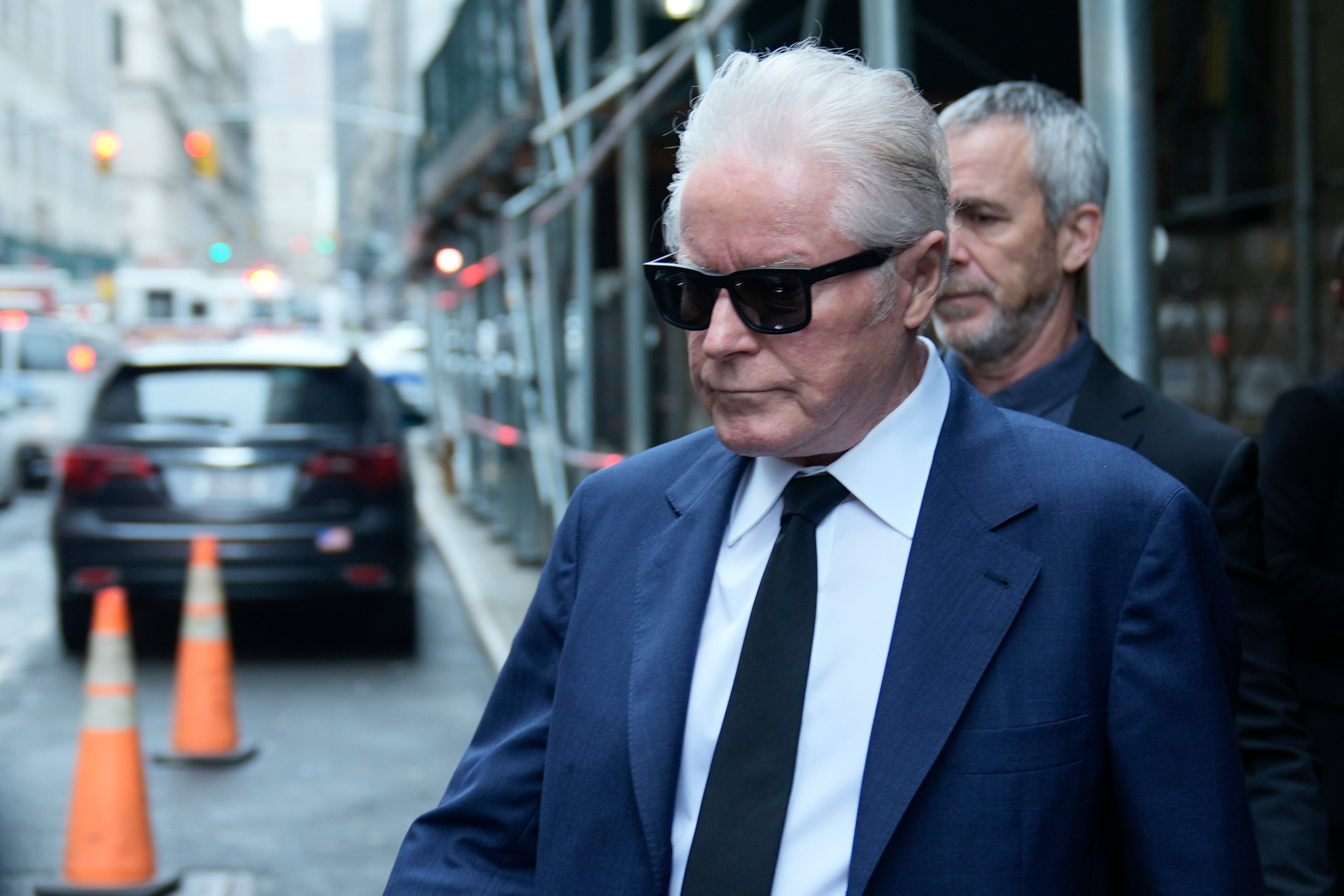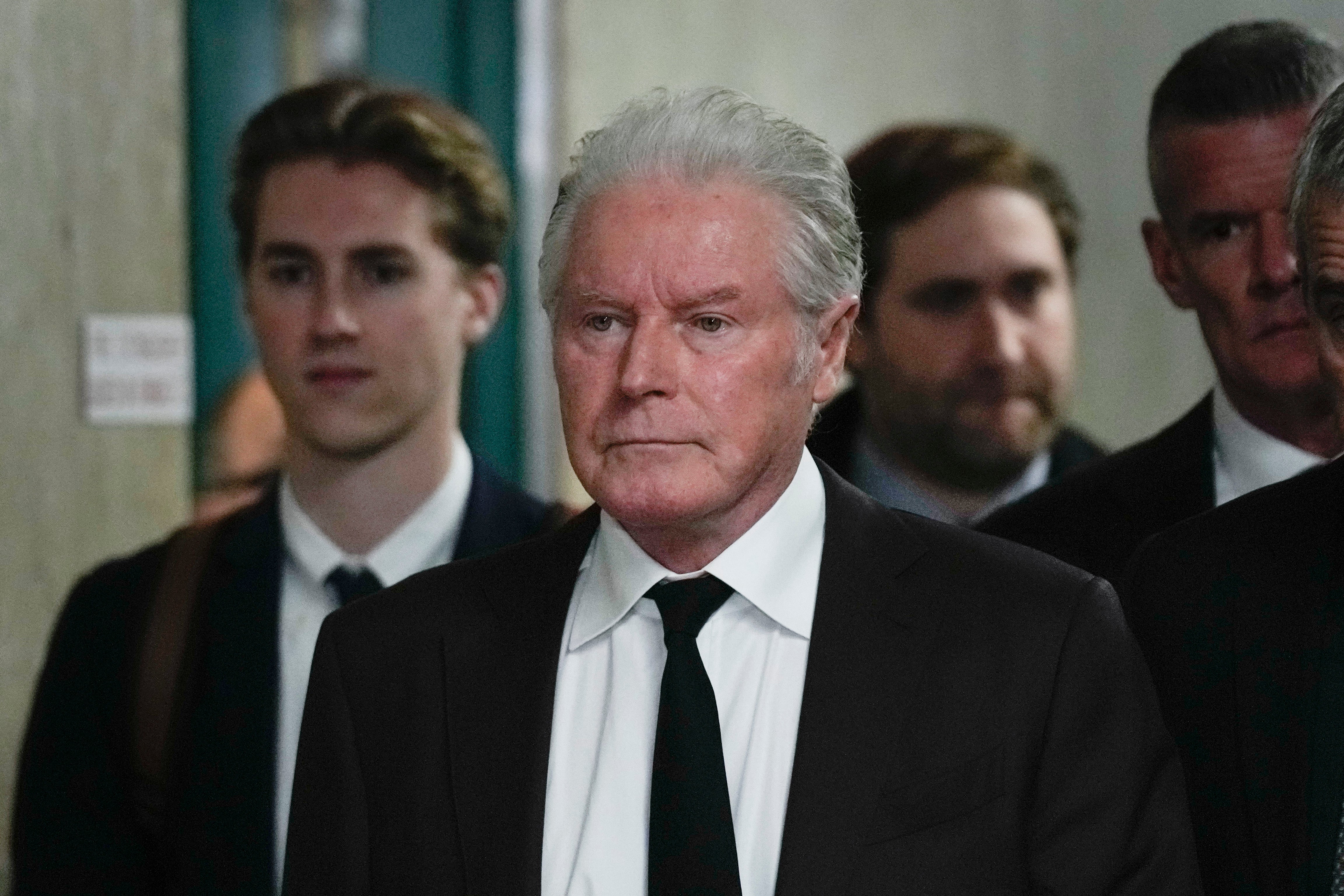The Eagles’ Don Henley returns to the road after final say in ‘Hotel California’ court case
Henley has told a court why drafts of lyrics to classic Eagles songs should never have shown up at auctions

The lyrics to “Hotel California” and other classic Eagles songs should never have ended up at auction, Don Henley told a court Wednesday.
“I always knew those lyrics were my property. I never gifted them or gave them to anybody to keep or sell,” the Eagles co-founder said on the last of three days of testimony at the trial of three collectibles experts charged with a scheme to peddle roughly 100 handwritten pages of the lyrics.
Henley is returning to the road as The Eagles’ next show is Friday in Hollywood, Florida.
On trial are rare-book dealer Glenn Horowitz and rock memorabilia connoisseurs Craig Inciardi and Edward Kosinski. Prosecutors say the three circulated bogus stories about the documents' ownership history in order to try to sell them and parry Henley’s demands for them.
Kosinski, Inciardi and Horowitz have pleaded not guilty to charges that include conspiracy to criminally possess stolen property.
Defense lawyers say the men rightfully owned and were free to sell the documents, which they acquired through a writer who worked on a never-published Eagles biography decades ago.
The lyrics sheets document the shaping of a roster of 1970s rock hits, many of them from one of the best-selling albums of all time: the Eagles' “Hotel California.”
The case centers on how the legal-pad pages made their way from Henley’s Southern California barn to the biographer's home in New York's Hudson Valley, and then to the defendants in New York City.

The defense argues that Henley gave the lyrics drafts to the writer, Ed Sanders. Henley says that he invited Sanders to review the pages for research but that the writer was obligated to relinquish them.
In a series of rapid-fire questions, prosecutor Aaron Ginandes asked Henley who owned the papers at every stage from when he bought the pads at a Los Angeles stationery store to when they cropped up at auctions.
“I did,” Henley answered each time.
Sanders isn’t charged with any crime and hasn’t responded to messages seeking comment on the case. He sold the pages to Horowitz. Inciardi and Kosinski bought them from the book dealer, then started putting some sheets up for auction in 2012.
While the trial is about the lyrics sheets, the fate of another set of pages — Sanders' decades-old biography manuscript — has come up repeatedly as prosecutors and defense lawyers examined his interactions with Henley, Eagles co-founder Glenn Frey and Eagles representatives.
Work on the authorized book began in 1979 and spanned the band’s breakup the next year. (The Eagles regrouped in 1994.)
Henley testified earlier this week that he was disappointed in an initial draft of 100 pages of the manuscript in 1980. Revisions apparently softened his view somewhat.

By 1983, he wrote to Sanders that the latest draft “flows well and is very humorous up until the end,” according to a letter shown in court Wednesday.
But the letter went on to muse about whether it might be better for Henley and Frey just to "send each other these bitter pages and let the book end on a slightly gentler note?”
“I wonder how these comments will age,” Henley wrote. “Still, I think the book has merit and should be published.”
It never was. Eagles manager Irving Azoff testified last week that publishers made no offers, that the book never got the band’s OK and that he believed Frey ultimately nixed the project. Frey died in 2016.
The trial is expected to continue for weeks with other witnesses.
Bookmark popover
Removed from bookmarks